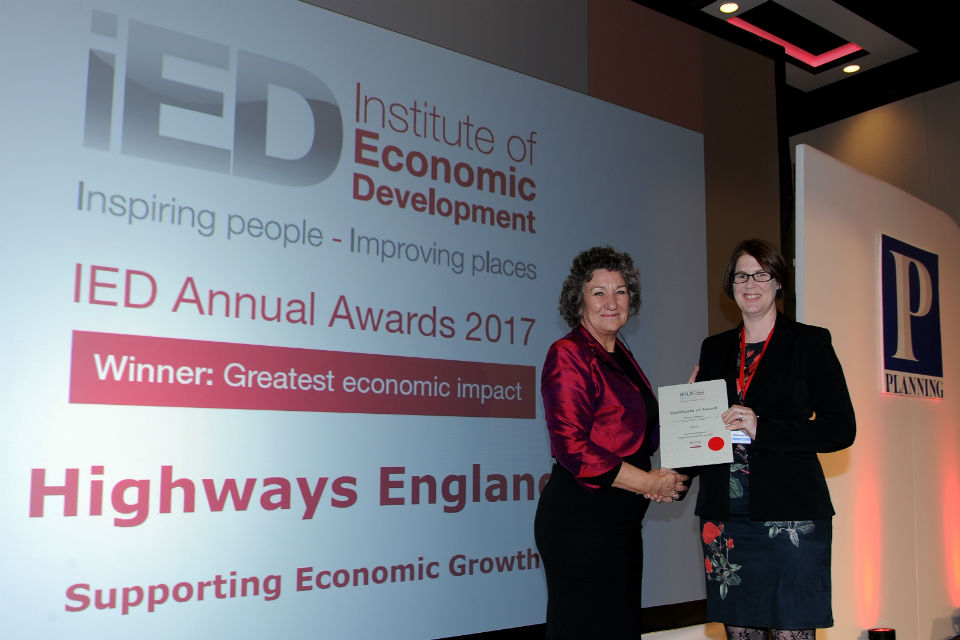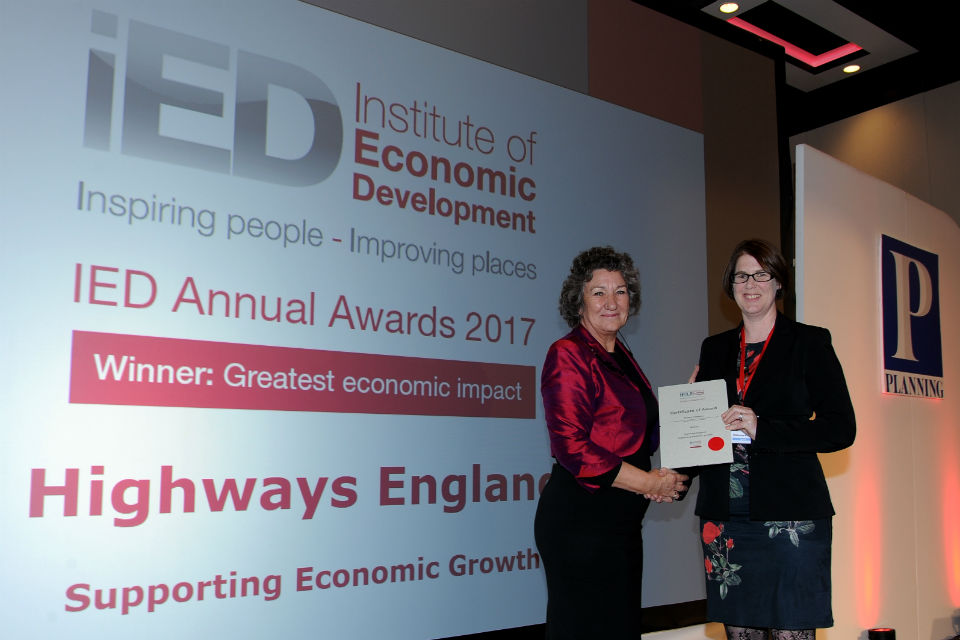Police volunteers who helped rural communities, assisted individuals in mental health crises and supported the victims of Grenfell Tower have been honoured for their work at an awards ceremony in London today (Tuesday 28 November).
The Lord Ferrers Awards recognise the outstanding contribution of special constables, police support volunteers and volunteer police cadets. They also acknowledge the support employers and their employees offer their local force. Over 600 nominations were received, twice as many as last year. This is the first year where volunteers who use technology creatively were acknowledged in a new award for Technical Innovation.
Nine winners were announced at the ceremony at Millbank Tower, attended by Home Secretary Amber Rudd and Minister of State for Policing and the Fire Service, Nick Hurd.
Home Secretary Amber Rudd said:
Policing volunteers across the country play a fundamental role in what is widely recognised as one of the best police forces in the world.
The contribution all of this year’s nominees have made in keeping their communities safe is testament to the wonderful spirit of volunteering that exists in this country.
I want to thank every winner, runner up and nominee for all that you do as we celebrate your true dedication and professionalism to policing.
Minister for Policing and the Fire Service Nick Hurd said:
Every year the Lord Ferrers Awards recognise the truly inspirational work of those who give up so much to serve their communities.
Volunteers bring valuable skills from outside policing and help ensure our police force is fully equipped to deal with the challenges of 21st century policing.
The government has brought forward legislation in the Policing and Crime Act to transform the powers and roles of police staff and volunteers which will come into force on 15 December. These reforms will, for the first time, enable volunteers to be given powers at the discretion of chief officers, based on local need, and set out the core list of powers only available to a police officer holding the office of constable.
The Home Secretary also announced that from next year volunteers in the Offices of Police and Crime Commissioners will be eligible for nominations.
The winners are:
Ferrers Special Constabulary – Individual Award winner: Gareth Owen, Gwent
Gareth Owen worked with the Welsh Ambulance Service to establish a Joint Response Unit. With emergency services working closer together they were able to attend serious incidents quicker and tailor each response according to patients needs. The creation of the unit has resulted in a significant reduction in unnecessary conveyances to A&E as well as improved collaboration with the Ambulance Service.
Ferrers Special Constabulary – Team Award winner: Street Triage Team, Essex Police
A team of Special Constables with experience in the health and social care sector were brought together to help better serve individuals in a mental health crisis who needed urgent support or intervention. They set up a Street Triage Team where mental health nurses joined police patrols. Their invaluable expertise brings additional skills and knowledge to support mental health incidents. By working together they ensured tailored and appropriate responses to mental health incidents. The creation of this team also promoted a greater understanding within the police of mental health.
Police Support Volunteer – Individual Award winner: Andrea Phipps, Merseyside Police
Andrea Phipps is a chartered accountant and a chartered tax advisor, and has been assisting the Economic Crime Team at Merseyside police. She works on a variety of cases, each requiring specialist tax and accountancy knowledge. Without Andrea’s expertise the force would have had to outsource the work to a Forensic Accountant. Her work over the last two years has helped ensure the Economic Crime Team are one of the top three performing forces in the country for financial investigations and cash seizure.
Police Support Volunteer – Team Award winner: Puppy breeding scheme, West Midlands Police
West Midlands police had an issue procuring suitable dogs for the various operations undertaken by the force – including explosives and drugs detection. The commitment and flexibility from the police support volunteers has ensured that West Midlands police now have one of the largest puppy breeding and walking programmes in England and Wales. The police volunteers help raise the pups from six weeks to 14 months, assisting with training sessions and ensuring the continued development of the dogs.
Their efforts have meant the dog unit is maintained 24 hours a day and is able to offer a round-the-clock response to firearm, drugs and bomb threats. The dogs also help foster positive relationships with the public, especially among groups that are traditionally difficult to engage with – including children in care. The police support volunteers have also started a charity to support retired police dogs by helping to finance their ongoing medical treatment.
Volunteer Police Cadet – Individual Award winner: Hassan Khan, Greater Manchester police
Hassan has been a key member of the GMP cadets. He aims to break down barriers and educate his peers about tolerance and respect in an inner city area of Manchester. Hassan is also responsible for mentoring all of the new recruits that start the cadet scheme, ensuring they are all fully integrated within the team. He has worked with cadet leaders to develop a senior cadet leadership workshop so cadets can improve and hone their skills. Hassan plays a vital link between the cadets and the team leaders to ensure that young people are supported and work towards their development aims.
Volunteer Police Cadet – Team Award winner: Kensington and Chelsea Cadets, London Metropolitan
Following the Grenfell Tower fire, a team of cadets in Kensington and Chelsea organised fundraising events and vigils for the victims of the fire. They also organised a residential camping trip to the Isle of Wight for young people affected by the tragedy so they could have a break away from the city. The cadets provided support the young people throughout the trip and it enabled them to speak openly about how they felt and the impact the fire had on them. As a result of their work, local children have enlisted with the local cadets.
Employer supported policing Award winner: Trafford Council, Greater Manchester Police
Employer Supported Policing (ESP) is a partnership benefiting employers, their staff and the police service. Trafford Council agreed that they would offer staff an additional 10 days paid leave to either undertake volunteer police duties or training. The council already supported Special Constables who live and/or work within the Trafford borough by offering reduced council tax payments, however they were keen to encourage council staff to join the ESP scheme – and now give paid leave to their staff who are Special Constables. As a result, ten new applications were made to the Special Constabulary from council staff and Trafford Council based Special Constables have so far given 269 hours of policing to the local community since the scheme began last year.
ASCCO Leadership Award winner: Andrew Turner, Devon & Cornwall Police
Andy has introduced a dedicated ‘Rural Engagement Team’ to address the problems of rural crime, increase engagement with the farming community, help to reduce suicides amongst farmers and provide crime prevention advice. Rural communities and farmers in Devon and Cornwall often feel isolated so the team maintain a high visibility in those areas to provide reassurance. They have also signed up over 400 farms to Farm Watch, a scheme that shares intelligence between the community and the police to prevent theft.
Technical Innovation Award winner: Community Speedwatch Online, Sussex
The Sussex policing area has one of the highest rates of road deaths in the country. CSW online have developed and introduced an internet-based application and web-platform to manage all aspects of Community Speedwatch activity. CSW online today manages almost 2,500 trained volunteers spanning several counties. The system has improved the accuracy of recording speeding drivers and brought consistency and clarity to the process. It has generated over 20,000 educational letters in Sussex alone in the last year and helped raise the profile and effectiveness of Community Speedwatch as a way of local residents supporting the police to tackle this important issue.
Link: Press release: Home Secretary honours special constables and police volunteers
Source: Gov Press Releases


